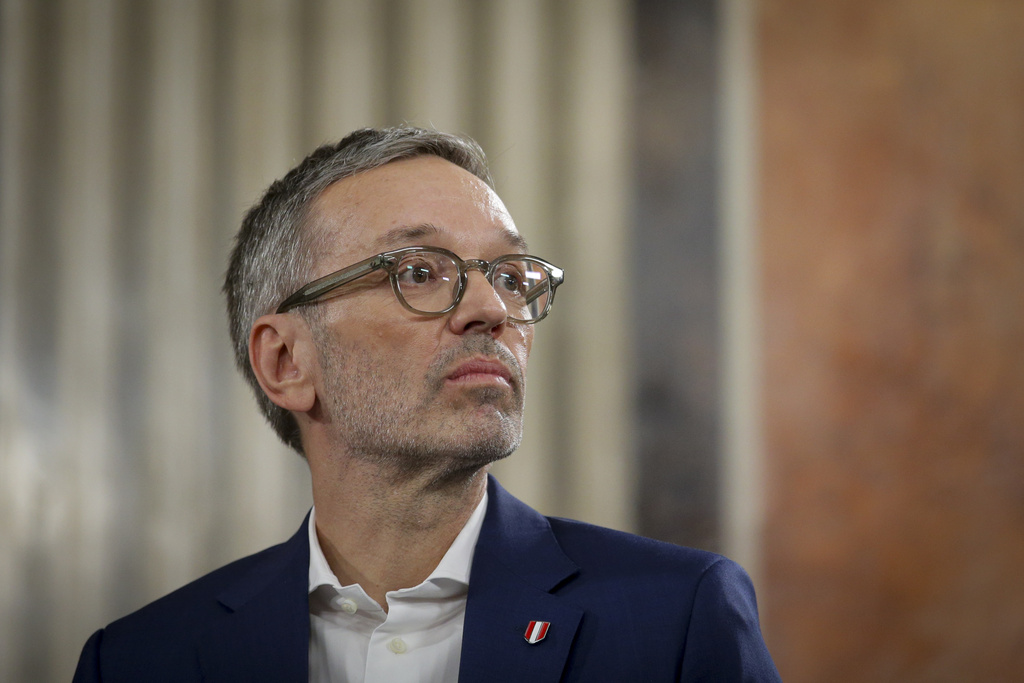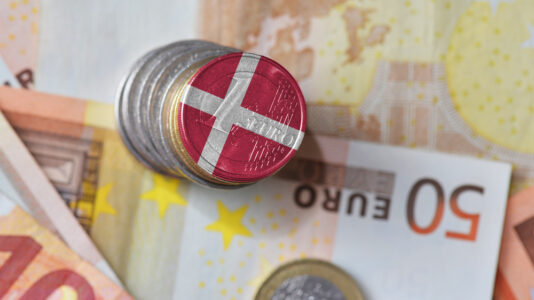In nearly every major country in Europe, the right is facing lawfare and in the case of Germany, an outright ban of an entire party. Now, in Austria, Freedom Party of Austria (FPÖ) leader Herbert Kickl is facing prosecution after his immunity was lifted.
Austria’s public prosecutor, The Economic and Corruption Prosecutor’s Office (WKStA), wants to open an investigation into Kickl over allegations he gave false testimony to a parliamentary committee inquiry. Austria’s parliament voted to lift his immunity, which will enable the investigation to move forward, with every party voting against Kickl except his own.
Austria’s public prosecutor is looking into a variety of topics, including claims his party used public funds to pay for advertisements in exchange for favorable coverage from media outlets.
🇦🇹🚨 Landslide victory: Austria's FPÖ celebrated a massive 1st-place finish in regional elections after results came in.
The FPÖ was locked out of the federal government despite a 1st place finish earlier this year.
This is sweet revenge for the party. pic.twitter.com/e1lyAC4w4Y
— Remix News & Views (@RMXnews) November 24, 2024Notably, Kickl’s party landed in first place during national elections earlier this year, but all the parties blocked him from forming a coalition. Currently, his party is more popular than ever before, with 34 percent of voters saying they would back the party. During national elections, FPÖ only won 29 percent of the vote, while their rival, the Austrian People’s Party (ÖVP), dropped in popularity dramatically since the elections.
An ÖVP politician, Christoph Zarits, launched the request to lift Kickl’s immunity.
Kickl has defended himself, telling Austrian media when he was first accused that he “didn’t take care of advertisements” while he served as interior minister between 2017 and 2019. HIs party has called the lifting of Kickl’s immunity a political maneuver designed to attack the party as it grows in popularity.
All across Europe, rival parties are resorting to prosecution to hit their rivals, such as the prosecution of Matto Salvini in Italy for his role in blocking migrant boats landing in Italy during his tenure as interior minister. In France, presidential front-runner Marine Le Pen is currently facing trial over claims she misused EU funds for domestic politics, with the National Rally parliamentary leader facing years in prison and a ban on participating in politics for years.
🇫🇷🇮🇹 Salvini is facing 6 years in prison in Italy, but now Le Pen is facing 10 years in prison in France.
Politicians on the right are being subjected to show trials and long prison sentences across Europe. pic.twitter.com/Yu9eDquoOp
— Remix News & Views (@RMXnews) October 7, 2024In addition, Germany’s Alternative for Germany (AfD) is facing a serious ban threat despite the party currently polling as the second-most popular party in the country.
In perhaps the most shocking move as of late, Romania’s Constitutional Court just canceled the entire presidential elections because the right-wing NATO-skeptic Calin Georgescu was polling far ahead of his rival. The Constitution Court has claimed “foreign election interference” but has provided little to no evidence in support of its claims. It sets a dangerous precedent for future elections, in which courts can cancel entire election outcomes simply because they do not like the result.
NEW: 🇷🇴‼️ Romania's constitutional court has annulled the first round of its presidential election which saw right-wing NATO-skeptic Calin Georgescu win the most votes.
A re-run of the poll has been ordered.
The court claimed there were concerns over the legality of the process… pic.twitter.com/TPYn02N7Yg
— Remix News & Views (@RMXnews) December 6, 2024Hungarian Prime Minister Viktor Orbán recently commented on such a development, noting that “It’s only a democracy if they win. And everything is justified to stop us if we seem to win.”
PM Orbán: "It’s only a democracy if they win. And everything is justified to stop us if we seem to win."
Conservatives now facing prison:
🇺🇸 Trump
🇫🇷 Le Pen
🇦🇹 Kickl
🇮🇹 Salvini
"America showed clearly that we can still win under these extremely difficult circumstances." pic.twitter.com/YpDFDWX62B
— Remix News & Views (@RMXnews) November 20, 2024Chancellor Karl Nehammer, whose ÖVP previously formed two coalitions with the FPÖ, ruled out the possibility of them entering government with Kickl in charge. At the time, he described Kickl as a “security risk.”
Kickl is a divisive figure in Austria. He infamously peddled conspiracy theories and dubious medical claims during the Covid-19 pandemic, promoting the use of Ivermectin, a drug used to treat parasitic worms in animals.
He has also called the World Health Organization “an instrument for enforcement of power interests.”
The FPÖ has promoted a hardline stance on migration and called for lifting sanctions against Russia as well as limiting military aid to Ukraine.
Austrian parliamentarians also decided to lift the immunity of three other FPÖ party members who attended a funeral for a former MP where a Nazi slogan was chanted.
The MPs are accused of infringing a 1947 law that bans promoting ideology of the Nazi party as well as its reconstitution or denial of crimes against humanity committed by Nazis.






